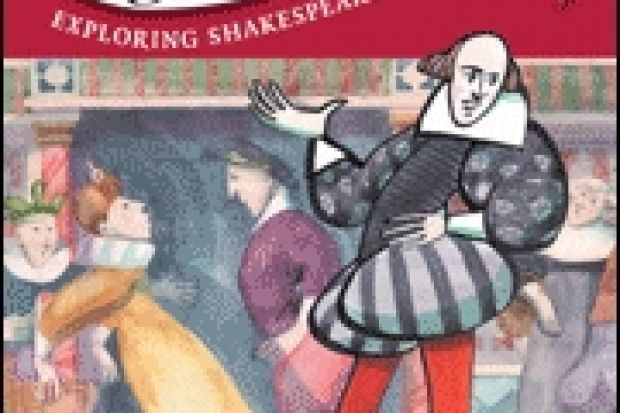The recent proliferation of popular biographies of Shakespeare, including that by Bill Bryson, is evidence that the market for books on the Bard is as buoyant as ever: the recent fame of Lynne Truss (Eats, Shoots and Leaves) suggests too that, rather more surprisingly, there is a popular market for books about grammar. An accessible book examining the "nuts and bolts" of Shakespeare's language thus seems timely, and David Crystal, author of the hugely successful titles Cambridge Encyclopedia of Language and English as a Global Language, is just the man to write it.
Crystal arranges his Bardic nuts and bolts into chapters on graphology, punctuation, phonology, pronunciation, vocabulary, grammar and conversation, charmingly giving each chapter a Shakespearean heading: "Trippingly upon the tongue", "Know my stops" and so on. Frequent playful invocation of Shakespearean phrases enables Crystal to exemplify his subject's influence on modern English idiom at the same time as describing it.
But he also cautions his reader against over-ready acceptance of bardolatrous myths such as the exceptional size of Shakespeare's vocabulary (large for its time but in fact only half that of Crystal's typical reader) or the "invention myth", in which improbably high proportions of the words we now use are claimed to be Shakespearean coinages.
Crystal's discussion of these myths involves him in commonsense arguments about missing evidence - words current in spoken, not written, Early Modern English, and written occurrences escaping lexicographers' attention - as well as analysis of statistical data from the concordance to the Shakespeare's Words website, a resource about which Crystal is infectiously enthusiastic. He also provides brief but helpful historical linguistic context demonstrating that Shakespeare was writing at one of the most lexically inventive periods in the history of English: Shakespeare's creativity thus makes him more typical of his time than exceptional.
Not that the sensible Crystal wishes to diminish his subject in the eyes of his reader. Shakespeare's linguistic legacy, he argues, is not his "invented word" count but his example of creative word use. Shakespeare shows us how we can exploit the linguistic resources we have in original and poetic ways: he teaches us to verb nouns and to adapt words "to express the inexpressible" - unshout, unspeak, unsex. Shakespeare offers "an object-lesson in the effective bending and breaking of rules". The aim of this rule-bending is economy of expression, which Crystal sees as the "hallmark" of Shakespeare's linguistic creativity and "the result always of a trading relationship between lexicon and grammar".
An understanding of lexical and grammatical nuts and bolts is therefore essential to understanding Shakespearean creativity, and Think on my Words offers the lay reader a lively and readable account that makes linguistic basics Crystal-clear.
For an A-level or first-year undergraduate student of English, the book conveniently reviews information about the development of Early Modern English, spoken and written, and, importantly, printed - a lucid account of printing processes accompanies the clear and concise discussion of Quarto and Folio Shakespeare editions. The book also exemplifies a methodology for linguistic analysis that is increasingly accessible to students thanks to such resources as the electronic Oxford English Dictionary and Shakespeare's Words website.
However, in spite of Crystal's preface asserting that one should always ask "what does it do?" of a linguistic nut or bolt, this book occasionally frustrates by stopping short of a full answer to that question. Commenting on the convoluted grammar of Coriolanus's "unexpectedly articulate" First Watch, Crystal writes that it is "beyond the remit of this book" to decide whether this is a character note, a way of talking to superiors or "just a piece of poor writing". We feel Crystal has decided, and we would like to know.
Think On My Words: Exploring Shakespeare's Language
By David Crystal. Cambridge University Press 266pp, £40.00 and £12.99. ISBN 9780521876940 and 700351. Published 21 February 2008
Register to continue
Why register?
- Registration is free and only takes a moment
- Once registered, you can read 3 articles a month
- Sign up for our newsletter
Subscribe
Or subscribe for unlimited access to:
- Unlimited access to news, views, insights & reviews
- Digital editions
- Digital access to THE’s university and college rankings analysis
Already registered or a current subscriber?




